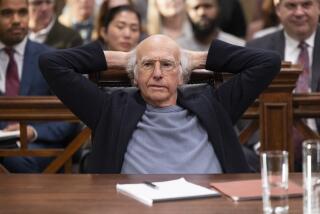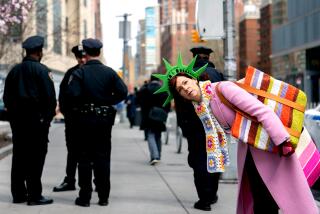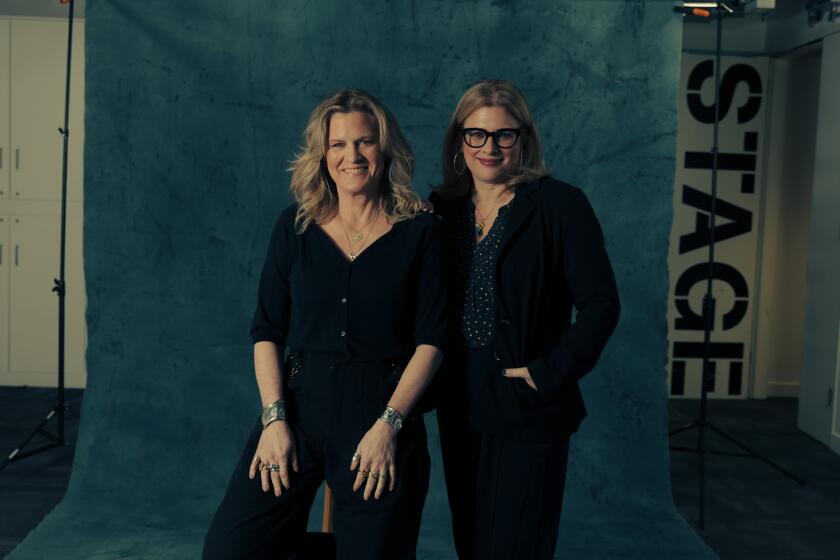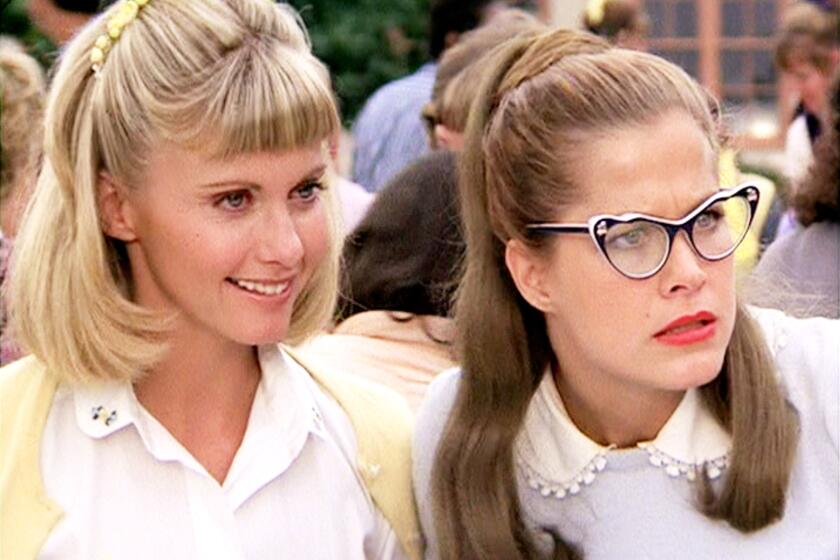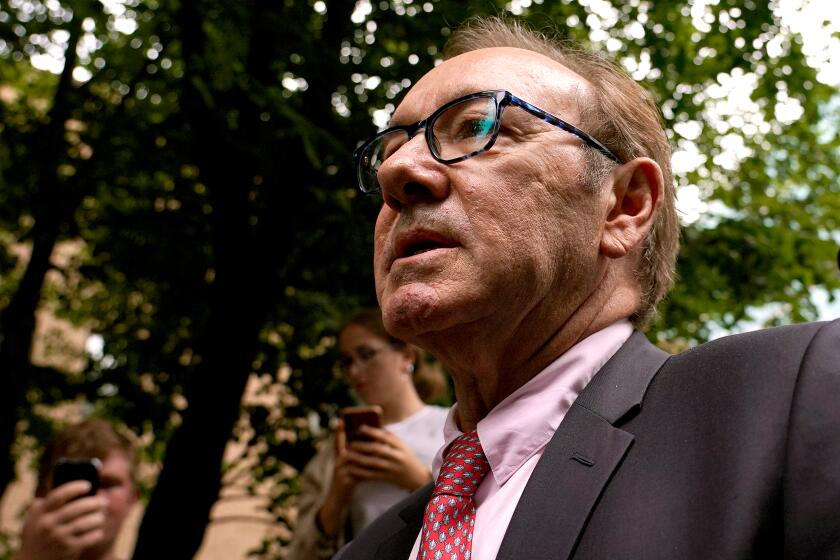Q&A: ‘Good Wife’ creators talk about going behind bars for Season 6
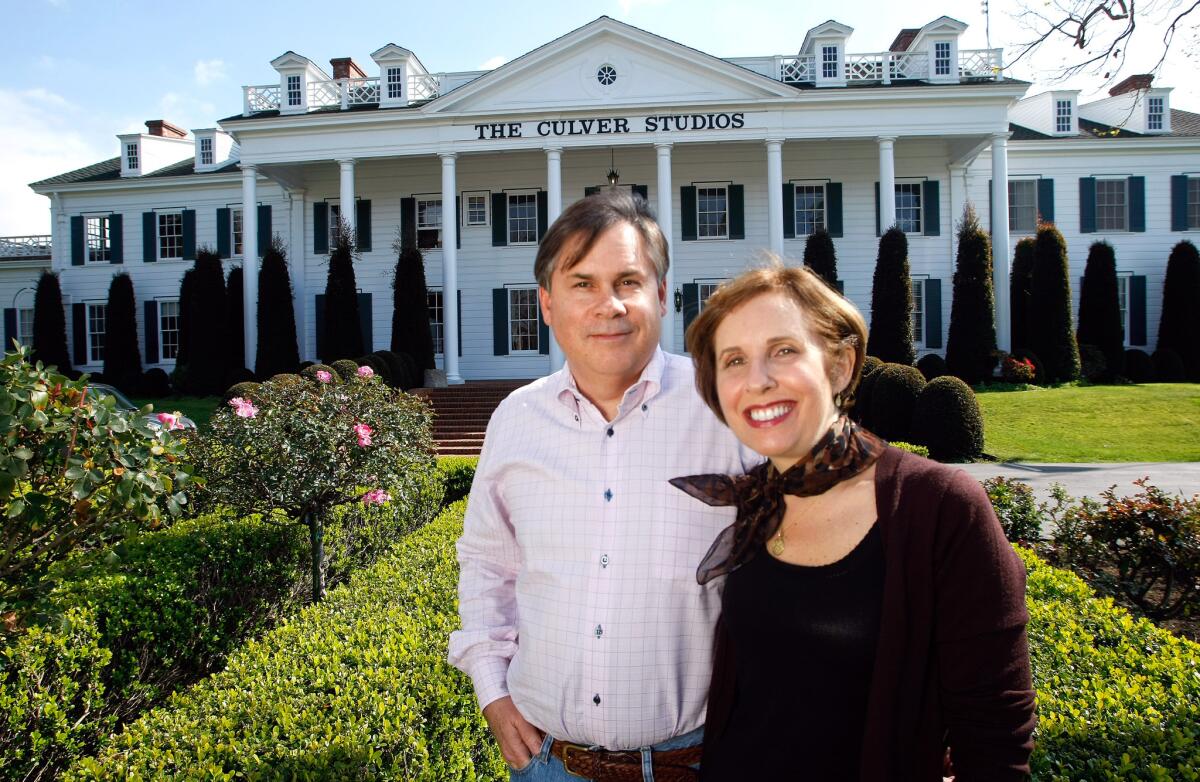
“The Good Wife” roller coaster, it turns out, isn’t quite done with the twists.
After a full-strength fifth season — manhandled desks! Will’s death! A question-ending cliffhanger! — it seemed the high-anxiety tension would ease up for Alicia Florrick and company. Then the Season 6 opener of the CBS drama premiered on Sunday and things got ... arresting.
If you haven’t watched the episode yet, go cuddle with your DVR. If you have, proceed to the next paragraph.
The opening minutes of the premiere find Cary Agos, Alicia’s ambitious law partner played by Matt Czuchry, getting arrested on drug charges, which is really a ruse to get closer to drug kingpin Lemond Bishop.
We spoke with “Good Wife” husband-and-wife creators Robert and Michelle King about heading to the clink this season.
----------------------
At one point did you have an idea of where Season 6 was headed?
Robert: I would say about halfway to two-thirds of the way through Season 5, we could start to see the outline of Season 6. It was very similar to the year before that, by the way; during Season 4 we kind of saw the outline for Season 5. We knew where we wanted to go with Alicia, we knew where we wanted to to go with Cary and all that. But it wasn’t until we got into the writers room — which we did earlier this year; we started it in May, two weeks after the end of working on all the shows of Season 5 — that we started to put things into shape. What happens with Cary really started to come into focus right around May.
Cary going to jail is an interesting direction to take things. Was there any pushback in the writers room about it?
Michelle: You know, occasionally there are story ideas that elicit confrontation in the writers room, or some light version of confrontation. This was not one of those times. This was one where everyone jumped onboard and thought it was a great idea. It had two things going for it: it felt inevitable, and yet surprising.
Robert: I think inevitable in that there was an episode the first season called “Fleas,” which is the first time we actually brought in Bishop, the drug dealer, as a client. And there was a real sense that if you lie down with dogs, you wake up with fleas. I think we’re seeing the end result of representing very, very corrupt people is that corruption seems to spread out and infect you, but also people try to use you against that.
As far as why we took things here, I mean, Matt Czuchry is a very good actor who we have not used as much as we want — only because the bench is so deep, and sometimes Matt was in the quieter story line. One of the things that helped was that Alicia and he were on such bad terms at the end of Season 5 — they were screaming at each other. What we wanted was an event that brought them together, and brought the firm together, to accomplish something.
Michelle: And the other thing that was so appetizing about this story line to us is that, of course, at the heart of the show is Alicia Florrick and this would impact Alicia so directly and in such complicated ways. Here she is being pushed to run for state’s attorney; it’s her law partner being thrown in jail: does she show loyalty to him, does she hedge her bets? It just really creates a conundrum.
You guys had me second-guessing Cary for a bit. And you’ve set this up where he’s sort of like a Will in-the-making, and this revelation was sort of like — is he toeing the line? Are his practices questionable?
Robert: I think if you’re feeling that, it’s a very good thing. The show tries to walk this dramatic line of people doing unethical things that are truly just part of the job. But then there are also — it’s easy to be pulled into this darker side of even doing more unethical sides. So the question is: does the show condemn these people? And if the show doesn’t condemn these people, sometimes the audience does. The morality of this show is not the morality of most shows. In some of the jobs these lawyers have to do, lying is not the wrong way to go.
Michelle: Or you only lie and cheat because you believe your client is 100% innocent.
Robert: But on the other hand, at the end of the day, Bishop is a drug dealer who kills people or gets people killed, so that’s a very difficult position to be as the lawyer representing that person. So is Cary bad or is Cary good? The show doesn’t ask those questions, but it’s alright for the viewer to back away and go, Do I believe him?
Whether I believe him or not, I was like, ‘Please don’t cut off his finger! He won’t survive!’
Robert: One of the things we wanted to do this year—only because the show is so elegantly designed and has such beautiful costumes, that we wanted to take it into the world that the show treats kind of superficially; the world of what it’s like to spend all night in jail. What is it like to not actually be given phone access to call your lawyer — at least not right away? Same with the minimal amount of blood we show on the show, it was interesting to us to show just a little bit more than usual.
What can you tell me about what Matt’s reaction was when you told him where he was headed?
Robert: He loved it. I mean, he saw that if you have the most dramatic things happen to you, you’re sort of the centerpiece for that episode or the next few episodes. You know, look, everybody has concerns about how the prison stuff will be treated, but we saw that it was a way to sort of bring out something that we haven’t seen in Cary before. Cary’s been thought of as this entitled suburban boy. And I think even though he’s grown some strength, now he’s being put through some real trials.
I was worried for him as soon as he was behind those bars. I was like, they are gonna have a field day with him.
Michelle: Not on network TV.
Touche. How far into the season will this story line carry us?
Robert: Can we not answer that, except to say that we are fascinated with the story and we want to carry it further. It probably won’t go the whole year, I’ll just say that.
Did you feel that you had to step up your game even further in the sixth season considering how high-powered the fifth season was?
Michelle: We may have had different emotional responses to it. I guess I walk into every season feeling like we just need to do the best we can. For me, walking in after Season 5 didn’t feel any different than walking in after Season 4 or 3. It was the same sense of “OK, how do we make this show the very most entertaining viewing experience that we can.”
Robert: Each year we try to focus on one department and see if we can kick it to a new level. Last year, it was music with David Buckley, which, I think he found a real new way to go. This year we’re trying it with the visuals and with the directors to try to give it a ... kind of a broader canvas view.
Last year had some really good moves that I don’t think we can ever repeat because the show isn’t trying to top itself with twists. It’s all about surprising you with different ways to go, as opposed to, “well, now that you saw one person die, let’s kill three people.”
The only thing we’re probably doing different than last year is that it’s more serialized.
Why did you decide to go that route?
Robert: One of the reasons was because we could. And the other reasons were we found that some of the best episodes last year, in our opinion, were not ones that had cases. It was like “Hitting the Fan,” which was Alicia breaking up the firm. In other words, if there was a case, it kind of got drawn out of something personal in Alicia’s life. So when I say serialized, I just mean that it won’t have as much as a case-of-the-week feel. Things will spill over.
What will we see with Alicia and Peter this season?
Michelle: I would say similar to years past.
Robert: We’re fascinated this year of them as a power couple — when they rely on each other to advance each other’s careers. What is the nature of a relationship like that? Is there love? Is love even bound to a career? If you need someone for your career, do you love them or is it just necessity?
And Alicia as state’s attorney isn’t totally dead?
Robert: Correct. What we loved and were inspired by was Obama being seduced into running with Axelrod. What we’re playing with is how would Eli have to get his ducks into a row to convince her.
What else should we know about this upcoming season? What are some of the major themes that come to light?
Robert: One of the things, there was a book out in 1992 or ‘93, “What It Takes,” which is about the ’92 presidential election. And it was about how politics tends to chew up people. They really sometimes have great ideas, and have real respect for the system and the voters, and then the process chews them up. if there’s any heading to this year for us, it’s “What It Takes” — what does it really require to achieve something that you want? And are you willing to give up your ideals, are you willing to give up your ethical standards to pursue it?
And, lastly, he’s gone, but not forgotten: Mr. Josh Charles. He’ll be making a return, yes, to direct?
Robert: Yes. He’s coming back for the 18th episode.
Michelle: He’ll be back with us sometime in 2015.
For more on the television world, follow me on Twitter: @villarrealy
More to Read
The complete guide to home viewing
Get Screen Gab for everything about the TV shows and streaming movies everyone’s talking about.
You may occasionally receive promotional content from the Los Angeles Times.

